The founder of Hon Hai Group, Terry Gou, recently claimed that if he is elected president, the fraud group will disappear within 90 days. Regarding this, Minister of the Interior Lin Youchang said in an interview today that fraud is already a transnational and complex crime , must be pragmatic; the media asked whether it meant that 90 days was impossible, Lin Youchang said: "Anyone has the right to speak."
Lin Youchang said that the United States began to increase fraud cases 5 years ago, Australia 4 years ago, and Taiwan 3 years ago. Environmental, financial, technological crimes, and recently violent crimes have been added, so it is a complex and new type of crime. Everyone very much hopes that these crimes can be curbed, but it must also be pragmatic.
Lin Youchang said that the problem of fraud must be managed from the source, that is, investment advertisements on online platforms. He has successively visited multinational companies such as Google, Meta, and Line, hoping to stop fraud at the source, including providing a list of celebrity investment advertisements that have been reported. Ask them to control the source of these lists; establish a platform to share the latest investment fraud, and let them think about how to help the government stop fraud in their system; others include establishing channels to quickly transmit relevant information, setting up workshops and discussion with the public and immediately propose a response plan.
CCP China's anti-espionage law has been upgraded, and the risk of Taiwanese being arrested in the mainland has increased sharply
Image : The Chinese Communist Party (CCP) has recently passed an amendment to the Anti-Espionage Law, which expands the definition of espionage and requires telecommunications and Internet service providers to "cooperate in combating espionage." The picture shows surveillance cameras everywhere on the streets of Shanghai. (Reuters file photo)
Effective from July 2023, Scholars: The CCP says you are a spy and you are a spy
The Standing Committee of the National People's Congress of China has recently passed an amendment to the "Counter-Espionage Law", expanding the definition of espionage to include "relying on espionage organizations and their agents", "targeting state organs, secret-related units, or key Cyber attacks on information infrastructure and other acts”, and require postal, telecommunications and Internet service providers to cooperate in combating espionage activities. The new system will come into effect on July 1 this year. Scholars warned that this law is an evil law with unlimited scope. "The CCP says you are a spy, and you are a spy." The risk of Taiwanese being arrested in China is doubled.
News (16)
Telecom and Internet operators are required to cooperate in the arrest of spies
According to the assessment, China's latest revision of the "Anti-espionage Law" puts Taiwanese at risk of personal safety if they interview public opinion in China at will, and they will be regarded as spies if they receive Chinese state-owned enterprises too enthusiastically, and criticizing the Chinese Communist Party is also not allowed. On social media Commenting on Taiwan and Hong Kong issues will be regarded as a spy; if you take photos and videos in China in the future, you should stay away from places related to rare earths, and don’t draw maps privately; going to Xinjiang and Tibet is even more risky, and even hiring employees from Chinese state-owned enterprises may change jobs It will be regarded as an act of espionage by the CCP.
News (17)
There are risks in receiving Chinese state-owned enterprises too enthusiastically
Interviewed officials who are familiar with China’s issues pointed out that the “anti-espionage law” uses an uncertain legal concept, which has created psychological pressure on foreign forces. The CCP can arrest you if it wants to, and it will also lead to mutual reporting. If a Taiwanese company is an affiliated organization or beneficiary, or if it is framed as a spy, everyone will be in danger.
News (18)
Taiwanese companies are afraid of being framed by competitors, everyone is at risk
Officials emphasized that this is politics above all else, and the punishment is extremely severe. If Chinese people from Taiwan go to CCP China, they must be careful, otherwise they are very likely to be arrested and convicted for their words and deeds in Taiwan. This kind of law seriously hinders the normal exchanges between the two sides of the strait, and will only lead to the withdrawal of foreign capital. People of insight in Taiwan will not want to stay on the other side of the strait.
Hong Jingfu, a professor of political science at Cheng Kung University, said that the revision of the "Anti-espionage Law" by the CCP is to expand the crackdown on foreign hostile forces. Communist China (mainland China) already has the crime of picking quarrels and provoking troubles to suppress people's petitions and petitions. The "Anti-espionage Law" targets people other than Chinese citizens.
Hong Jingfu analyzed that Taiwanese people who criticize the Chinese Communist Party on the Internet or make politically incorrect remarks about the Chinese government may be arrested and charged with espionage if they go to CCP China, and the risk of going to the mainland will double.
Hong Jingfu pointed out that this law has a huge impact and is already an evil law with unlimited scope, because spies are defined by the CCP government. "If you say you are a spy, you are a spy." Agent, it is very easy for Taiwanese people to go to China to be imprisoned. This law can be used to deal with foreigners and companies, and it will speed up the departure of foreign capital from China.
News (19)
KMT: The 2024 general election is a confrontation of integrity vs fraud
Reporter : Shi Xiaoguang / Image : In the morning of the 2nd, the KMT held a press conference titled "2024 is a confrontation of integrity vs fraud, exposing the DPP's "governing the country with false information". (The picture is taken from the Facebook "Chinese KMT KMT" live video)
The KMT held a press conference on "2024 is a confrontation of integrity vs fraud, exposing the DPP's "governing the country with false information"" in the morning of 2 May 2023. Lin Jiaxing, deputy chairman of the Cultural Communication Committee, said that President Tsai Ing-wen is in power. Over the past 7 years, government officials have been eating vegetarian meals, and Taiwan's economy has been declining. Last year, it was said to "keep 3", but the economic growth rate was only 2.43%. This year, it was said to "keep 2", but in the end it may only become "green".
Lin Jiaxing pointed out that when the global economy recovers, Taiwan's economic growth has fallen off a cliff. In the first quarter of this year, the economic growth rate was negative 3.02%, a record low in 14 years. The economic growth rate in the past two quarters has plummeted by 6%. Blame the Russia-Ukraine war and global inflation, and blame the lack of momentum for China's economic growth. In fact, China's economic growth rate reached 4.5% in the first quarter. Taiwan's economy did not grow, only prices continued to rise.
He emphasized that the 2024 general election is not only a choice between peace and war, but also a choice between integrity and fraud. DPP presidential candidate Lai Ching-te has recently been busy drinking pearl milk tea and using his working time as vice president to campaign instead of caring about labour. However, he did not reflect on and review the various wrong policies he adopted when he was the Premier of the Executive Yuan in the past, so that labour became the most deceived part of the DPP.
He also said that pearl milk tea is becoming more and more expensive now. A cup of pearl milk tea used to cost only NT$25 or NT$30 now a cup of pearl milk in Lai Ching-te’s hands costs NT$70 or NT$80.
KMT New Taipei City Councilor Jiang Yizhen pointed out that the DPP’s second case of political fraud was when New Taipei City Mayor Hou Youyi visited Singapore a few days ago and called the New Taipei City Police Chief to ask the police to mobilize to sweep up illegal activities, but was questioned by the DPP legislators as acting. The Central Committee of the Democratic Progressive Party also held a press conference to accuse Hou You-yi of acting and making phone calls. I could indeed hear the voice of the police chief of New Taipei City replying.
Jiang Yizhen said that the Taiwanese media reporters accompanying the interview had independently interviewed Hou You-yi's undisclosed itinerary in the Singapore government agency, and were concerned by the Singapore police. The party leads the direction of public opinion with fake news.
KMT New Taipei City Councilor Wang Weiyuan pointed out that during the recent clashes in the New Taipei City Council, the green camp accused him of being a hooligan and punching people, but in fact he was pushed and pulled and did not fight back at all. The DPP New Taipei City Council group said he was a hooligan and punching. This is the way the DPP has always cheated and smeared, and after the lies and rumours are exposed, they are unwilling to apologize. He wants to ask Lai Ching-te whether he should restrain and ask the cadres of the parliamentary party group to apologize to the society, otherwise it will be Lai Ching-te agrees with smearing, spreading rumours, and letting dogs bite people.
News (20)
U.S.-Czech foreign ministers' strategic dialogue promises to deepen support and cooperation with Taiwan
Image : Czech Foreign Minister Lipavski (first from the right) visited Washington and held the 11th round of US-Czech Strategic Dialogue with US Secretary of State Blinken (first from left) on the 2nd. (Associated Press)
[Central News Agency] The foreign ministers of the United States and the Czech Republic held a strategic dialogue in Washington on 3 May 2023, focusing on the Russia-Ukraine war and the Chinese challenge. After the meeting, the two sides issued a joint statement reaffirming their commitment to maintaining peace and stability across the Taiwan Strait and deepening support and cooperation with regional democratic partners, including Taiwan.
Czech Foreign Minister Jan Lipavsky visited Washington from 1 to 4 May 2023. On 3 May, he went to the US State Department to hold the 11th round of the US-Czech Strategic Dialogue with Secretary of State Antony Blinken. After the meeting, the two issued a joint statement.
Regarding the Indo-Pacific region, the statement pointed out that the two countries discussed the current regional situation and the challenges China poses to the rules-based international order and mutual interests, security and values. To meet the challenges, the U.S. and Czech Republic will actively cooperate with the Indo-Pacific and other regional allies to achieve a free and open Indo-Pacific that is more interconnected, prosperous, secure and resilient.
The statement stated that both countries reaffirm their commitment to maintaining peace and stability across the Taiwan Strait, and deepened support and cooperation with regional democratic partners, including Taiwan, emphasizing that "transatlantic and Indo-Pacific security are indivisible."
Facing the Russia-Ukraine war that has lasted for more than a year, the statement emphasized that the U.S. and Czech Republic stands firmly with the Ukrainian people, supports Ukraine in defending the country and democracy, and resists Russia's brutal war invasion. The statement called on Russia to stop its foreign military offensives, completely withdraw its troops from Ukraine, Moldova and Georgia, and respect internationally recognized borders.
According to the statement, the foreign ministers of the two countries discussed how to cooperate with their allies to help Ukraine maintain economic stability and support Ukraine's post-war recovery and reconstruction. The two also emphasized that U.S.-Czech must continue to cooperate to promote accountability for Russia and use economic sanctions, export controls and other measures to limit Russia's ability to continue to invade Ukraine.
News (21)
Non-majority races in foreign countries and China: The citizenship question
[Original Title: Myanmar and China : The citizenship question]
Image of Chinese dragon dancers in Yangon's Chinatown in 2019 : The Irrawaddy
Citizenship issues are a vital element in any state’s sovereignty. Countries vary and individually adapt under the two generally recognized systems of law: jus soli (right of the soil—where one was born) and jus sanguinis (right of blood—one’s heritage). States continuously redefine the qualifications, such as whether—and how—the male or female blood line applies, religious beliefs, historical records, and the issue of dual citizenship.
News (22)
Myanmar's citizenship law faces challenges of amendment
Myanmar has a unique system based on its 1982 citizenship law. Under it, only taingyintha (literally, “sons of the land,” called “national races” (actually ethno-linguistic groups) long and traditionally resident in Burma/Myanmar are full citizens with whatever rights such status stipulates. Members of other ethnic groups, such as Chinese or Indians, may, depending on a number of factors such as length and proof of family residence before 1823, become citizens, but that number must be small. The remainder may become associate or naturalized citizens with less status and rights. The Myanmar government until the coup of 1 February 2021 has regarded the Rohingya as alien Bengalis. The issue is now under dispute. So, the system in Myanmar is a type of modified and combined jus sanguinis and jus soli system.
News (23)
CCP China as emerging power with expatriates in foreign countries has implications for host countries
However, what happens when another country with extensive expatriates has a different system, and seems more intent on recognizing its perceived authority over them? The case is China, with important implications for Myanmar, and indeed far beyond Myanmar to those Chinese resident in the West.
News (24)
Chinese association conference in Myanmar in 2019 calls for overseas Chinese communities to follow the Chinese Communist guidance of Xi Jinping
In May 2019, in a highly significant event basically ignored by the international media, President Xi Jinping attended the 9th World Ethnic Chinese Association Conference in Beijing, jointly sponsored by the Overseas Chinese Affairs Office of the State Council and the All-China Federation of Returned Overseas Chinese. The conference called for “the members of the association of Chinese in the world to follow the guidance of the Xi Jinping socialism with Chinese characteristics in the new era…” (Xinhua News). He seemed to demand political and economic orthodoxy for worldwide Chinese—some 60 million in about 200 countries and regions—under his and the leadership of the Chinese Communist Party (CCP).
This has historical Chinese roots. Starting in 1909, the Chinese Qing Dynasty regarded Chinese anywhere in the world as theoretically subject to Chinese central government authority to ensure “perpetual allegiance to the state”; i.e., jus sanguinis. This policy was reaffirmed under the Chinese Nationalist (KMT) government until it was overthrown in 1949 by the People’s Republic of China (PRC), which continued the policy for half a dozen years after its founding.
Timeline of Chinese community experiences in Myanmar
The Burmese civilian government was disturbed by this policy, as China at that time was regarded by the Burmese military as its only external threat and indigenous Chinese as a potential fifth column. It regarded the status of Chinese residents in Burma as one of the four major problems with the new PRC, the other three being a disputed border demarcation, Chinese support for the Communist Party of Burma, and the residual KMT forces that had retreated into northern Burma. It was only after Chinese Premier Zhou Enlai reassured Prime Minister U Nu in the mid-1950s that the Chinese ought to obey Burmese law and customs that the Burmese government’s fear of Chinese residents was assuaged, at least until China exported the Cultural Revolution into Chinese schools in Burma, resulting in anti-Chinese riots and many deaths in Rangoon in 1967.
News (25)
Overseas Chinese in Southeast Asia are a critical component of governance
The overseas Chinese in Southeast Asia are a critical component of governance and the individual and collective economies of the region. Ethnic Chinese residents in Myanmar and Southeast Asia are more than simply numerous. In Myanmar, illegal Chinese immigration has resulted in several million Chinese (perhaps 4 percent of the population), excluding Sino-Burmese who are also very numerous. Chinese play extensive roles in the retail trade, even though the Burmese census of 2014 has not released their figures but regards them as essentially minimal. By 2000, there were some 25,000 Chinese firms involved in the retail trade in household sundries.
In Indonesia several decades ago, scholars estimated that overseas Chinese controlled 80 percent of private capital in that country.
Although the Chinese in Thailand have been better integrated into that society than in any other regional state except Singapore, which is largely ethnically Chinese, they remain profoundly important in the region.
Countering the Communist control over "large swathes" of the Chinese-language school system in Southeast Asia
In at least the first two decades of the PRC, communist control over large swathes of the Chinese-language school system in Southeast Asia was evident, causing concern that they could be an internal fifth column for PRC influence or control. Attempts to counter this was evident through the supply of anti-communist textbooks to a large number of schools by Taiwan, Hong Kong, and third-force Chinese, often with foreign support.
News (26)
Xi Jinping is determined to bring the overseas Chinese to learn Chinese language and culture of the Communists
Under Deng Xiaoping the tensions eased, shifting to the more recent “soft power” attributes of the Confucius Centers designed to teach Chinese language and culture essentially to the ethnically non-Chinese. However, now Xi seems determined to bring the overseas Chinese into line. China does not allow dual citizenship, so in many countries in the region the PRC can only bring moral suasion to their expatriates, although the power of China and the forces of family, the economy, and group identity are important. In Myanmar, the situation is complex, as the Chinese are essentially not Burmese citizens.
News (27)
Chinese Communist surveillance and attempted control worldwide are dangers to expatriate host countries
Given the alacrity and vigor with which the Chinese bureaucracy responds to perceived commands from the top of its very steep hierarchy, we may expect some additional pressures and tensions to surface. Recent reports have indicated increased official worldwide Chinese surveillance of Chinese, and current indications demonstrate the dictates of Xi cannot be easily ignored.
If China pushes the overseas Chinese in Myanmar to adhere to the dictates of the CCP, the problems of the past, which resulted in some riots but more recently strong anti-Chinese sentiments because of its aid program, may well intensify. Chinese surveillance and attempted control worldwide are dangers to expatriate host states. It needs to act more discreetly and carefully on these issues everywhere, but especially in fragile countries like Myanmar.
News (28)
Anti-war sentiment grips China, details of new conscription regulations lead to speculation
From 1 May 2023, the CCP’s new conscription regulations are officially implemented. The regulations allow retired soldiers to re-enlist in the army, and focus on college students, that have sparked public speculation. However, there is strong anti-war sentiment among the people in mainland China. Recently, an anti-war article went viral on the Chinese Internet. The article said, "Never go to the battlefield and never let the children go."
On 12 April 2023, the State Council of the Communist Party of China and the Central Military Commission announced a new version of the "Conscription Work Regulations", which comes into effect on 1 May 2023. The regulations emphasize "focusing on preparing for war" and "efficiently recruiting high-quality soldiers". "There is an urgent need for more outstanding young people to enlist in the army," the Ministry of Defense Mobilization declared.
A new chapter, "Wartime Recruitment," was added to the Regulations, focusing on the recruitment of retired soldiers; at the same time, the provision on deferred recruitment for school students and only children was abolished.
The regulations also focus on recruiting college students, and focus on recruiting technology-savvy science and engineering students, and stipulate that colleges and universities (that is, universities) can directly assign conscription tasks, etc.
According to the "Nikkei Asian Review", the CCP's army, which has nearly 2 million troops, originally had restrictions on the deadline for enlistment but new regulations allow veterans to re-enlist. The report believes that the new regulations reflect that the CCP is trying to increase its military power in preparation for a possible all-out war in the Taiwan Strait.
However, due to China's population decline and aging population, the number of enlisted soldiers has continued to decline in recent years. Parents in cities, in particular, are more reluctant to send their children to join the army because the army is considered a dangerous job. After all, China has implemented the one-child policy for more than 30 years.
The report quoted Masashi Iida, an expert on China’s maritime strategy from Japan’s National Defense Research Institute, as saying that the CCP’s military focused on recruiting retired soldiers and college students, reflecting the shortage of active servicemen and intelligence warfare.
Yao Cheng, former lieutenant-colonel staff officer of the Chinese Navy’s Navy Command, told Radio Free Asia overseas that the Chinese Communist Party’s conscription environment is harsh and requires high-tech weapon operations, especially the training of recruits by the navy and air force is not a one-day process, and veterans can quickly return to combat after re-enlisting on the post... But he observed that the soldiers' fighting will is not strong.
Yao Cheng believes that the morale of the army is divided: the soldiers are brainwashed all day long, and screaming does not work; some middle-level officers and division-level officers are willing to fight because they need to get promoted through a war; I am willing to fight, because there is no chance of winning the war in the Taiwan Strait, and I don't want to fight.
Yao Cheng said that the CCP has no ability to cross the Taiwan Strait, and the United States, Japan, the West and other countries may participate in the defense of Taiwan, so it has no chance of winning. The CCP used force to force peace and force surrender, and did not dare to actually land in Taiwan, but only to frighten Taiwan.
Yao Cheng also said: "People in China now generally have an anti-war sentiment and are unwilling to fight. I personally think that no one is desperately working for the Communist Party now, and most of them are waiting and watching."
Recently, an anti-war article went viral on the Internet. The article said, "If there is a war, I will not go, and I will not let my children go. I am a person who lives at the bottom of society. No one remembers us in times of peace, and only thinks of us in times of difficulty." Said No matter what country is in trouble, everyone is responsible. When receiving welfare benefits and enjoying state treatment, they are not given equal treatment. Whoever wants to go will go. Anyway, I will not go, and I will not let my children go.”
Soon, the post was reposted and liked on various online platforms in mainland China, which resonated with countless netizens. Some netizens said: "I won't go either, the low-level people have no obligation to work for the capital!" Some netizens also suggested that corrupt officials should go, "Urban management and agricultural management go first!"
More voices said, "The more people benefit from the country, the more they should actively participate in the war."
News (29)
Xi Jinping sets succession standards, forbids young officials to be "Crown Princes"
Reporter : Li Enzhen / Editor : Wen Hui / https://www.ntdtv.com/gb/2023/05/03/a103703902.html /
Image : On 20 March 2018, Hu Chunhua (left) and Chen Min'er at the National People's Congress meeting in the Great Hall of Beijing. (Greg Baker/AFP via Getty Images) In the "Selected Readings of Xi Jinping's Works" (hereinafter referred to as "Xi Xuan") published by the Chinese Communist Party, when it comes to the issue of successors, Xi Jinping said in a speech that some officials cannot be like " "Prince Prince" is like sitting there waiting for promotion. Since Xi Jinping came to power, Hu Chunhua, known as the "crown prince" by the outside world, has been eliminated, and Sun Zhengcai has fallen.
In April of this year, the CCP ordered the whole country to study "Xi Xuan", and required all colleges and universities to use it as learning materials to promote "Xi Thought" into classrooms. At the same time, the first and second volumes of "Xi Xuan" will be released in the mainland on April 3.
The CCP media reported that "Xi Xuan" included Xi Jinping's reports, speeches, conversations, instructions, and speeches from November 2012 to October 2022, totaling 146 articles. Some content is published for the first time.
In the second volume of "Xi Xuan", Xi Jinping mentioned the topic of selecting and training officials and successors at the National Organization Work Conference on 3 July 2018.
Xi Jinping said that when selecting and training young officials, "the first rule is to educate them to be loyal to the party and resolutely prevent double-faced people in politics."
When talking about the topic of "successor", Xi Jinping said that successor is an overall concept that cannot be understood mechanically and "does not refer to a specific person." It is necessary to educate and guide young officials to aspire to succeed, "instead of considering taking over a certain position." Young officials "cannot engage in self-design", "it is easy to violate the organizational principles if they think too much on their own."
Xi Jinping also said, "Excellent young cadres cannot be made into a special group, and they cannot sit there and wait for promotion like a 'prince.' "
After Xi Jinping came to power at the 18th National Congress of the Communist Party of China, Hu Chunhua, Sun Zhengcai, and Chen Miner were once called "prince princes" or "successors" by the outside world, but their official careers have surprised the outside world.
Hu Chunhua was a member of the 18th and 19th Politburo of the Communist Party of China. He and Sun Zhengcai, another member of the Politburo at the time, were once regarded as the "successors" after the 19th National Congress of the Communist Party of China. Unexpectedly, before the 19th National Congress, Sun Zhengcai suddenly Falling from the horse, Hu Chunhua's road to "successor" was also blocked.
At the 19th National Congress of the Communist Party of China, Hu Chunhua did not enter the Standing Committee as he wished, but remained a member of the Politburo and served as the third-ranked Vice Premier of the State Council. During his five years as vice premier, Hu Chunhua kept a low profile, helped the poor everywhere, and often expressed his loyalty to Xi Jinping.
Before the 20th National Congress of the Communist Party of China, Hu Chunhua was regarded as a popular candidate to become a member of the Standing Committee of the Politburo, the highest level of the Communist Party of China. He was even considered as a possible successor to Premier Li Keqiang. But the final outcome was unexpected. Li Keqiang, Wang Yang, and Hu Chunhua from the Tuanpai were all eliminated, and Hu Chunhua remained only a member of the Central Committee.
In March this year, after the end of the two sessions of the CCP, Hu Chunhua officially became the deputy party secretary of the CPPCC National Committee, which also means that Hu Chunhua, who has not yet reached the retirement age, "retired to the second line" ahead of schedule.
The 20th National Congress of the Communist Party of China reshuffled the cards. Not only was Hu Chunhua out, but Chen Min'er, who was regarded as Xi Jinping's popular successor, was unexpectedly absent.
Ding Shufan, an honorary professor of the Institute of East Asian Studies at Chengchi University, once analyzed in NTDTV's "Global Connection" program that Xi Jinping has not taken the initiative to find a successor, but conversely, no one dares to be his successor. Because in the history of the CCP, the designated successors ended up miserable.
Ding Shufan said, "Successor is actually a very dangerous job, so I don't think anyone would dare to be his (Xi) successor."
Li Yuanhua, a historian living in Australia, once told The Epoch Times that the CCP’s recent promotion of “learning thought” by the whole party and even the whole people can indeed be described as another spiritual castration of the Chinese people. Yes, this will be very dangerous for those who still do not have a clear understanding of the CCP.
News (30)
Li Qiang is at a loss after taking office, and the manufacturing data in April is below the critical point
After Li Qiang, a confidant of Xi Jinping, took over as Premier of the State Council of the Communist Party of China, China’s economic situation remains sluggish. Official data released this week showed that Chinese manufacturing activity shrank in April, renewing the pressure on authorities trying to find an economic recovery.
According to the data released by the National Bureau of Statistics of the Communist Party of China on 30 April 2023, China's manufacturing purchasing managers index (PMI) dropped from 51.9 in March to 49.2 in April, falling below the critical point, which proves that the level of prosperity in China's manufacturing industry has dropped.
PMI usually uses 50 as the cut-off point for economic strength. A PMI above 50 reflects the overall economic expansion, and a PMI below 50 reflects the overall economic contraction.
The April PMI was also below the 51.4 forecast by economists in a Reuters poll, marking the first contraction since December, when the official manufacturing PMI came in at 47.0.
From the perspective of enterprise scale, the PMIs of large, medium and small enterprises were 49.3, 49.2 and 49.0 respectively, all lower than the corresponding values in March.
Reuters reported that subdued inflation in China and a surge in bank deposits cast doubt on demand.
On 18 April 2023, the National Bureau of Statistics of the Communist Party of China announced that the GDP in the first quarter increased by 4.5% year-on-year. The Political Bureau of the CPC Central Committee admitted at a meeting on 28 April 2023 that China's current economic operation is mainly restorative, the endogenous driving force is not strong, and demand is still insufficient.
In this regard, current affairs commentator Zhong Yuan wrote an analysis in The Epoch Times, if the 4.5% year-on-year GDP growth in the first quarter is "mainly restorative", it means that the Chinese economy has never recovered to its original scale. This is actually no different from what Li Keqiang once said about "stabilizing the economic market".
Li Qiang officially succeeded Li Keqiang in March as Premier of the State Council of the Communist Party of China. However, judging from the official economic data released by the Communist Party of China, the Chinese economy has not improved since Li Qiang took over as Premier.
Zhong Yuan analyzed, "The Politburo meeting on April 28 further lowered the tone, reflecting the real situation of China's economy, and also revealing that the CCP's top leaders continue to be at a loss for what to do about the economy."
According to data previously released by the Chinese Communist Party, in the first quarter of this year, the GDP growth rate of eight provinces and cities, including Beijing, Shanghai, Guangdong and Fujian, was lower than the national average of 4.5%.
Among them, the GDP growth rates of Beijing and Shanghai were 3.1% and 3% respectively; while the GDP growth rates of Jiangxi and Fujian were the lowest, only 1.2% and 1.7% respectively. These two provinces ranked first in the country with an economic growth rate of 4.7% last year.
Current affairs commentator Wang He told NTDTV, "The entire Chinese economy is now facing a problem of overall collapse."
According to Wang He's analysis, it has been almost a year since Shanghai was closed last year, and Shanghai's economy has not recovered yet. For example, Guangdong Province is China's largest economic province, and its economy has not recovered yet. while those key economic provinces' growth rate is lower than the national average growth rate. This shows that the problems CCP China's economy is now facing are quite serious.
Video (1)
Brainwashed since childhood "Taiwan can't afford instant noodles"... Chinese youth: As long as the Communist Party does not perish, the world will have no peace
Video (2)
A UFO resembling a starship appeared in Harbin (Video)
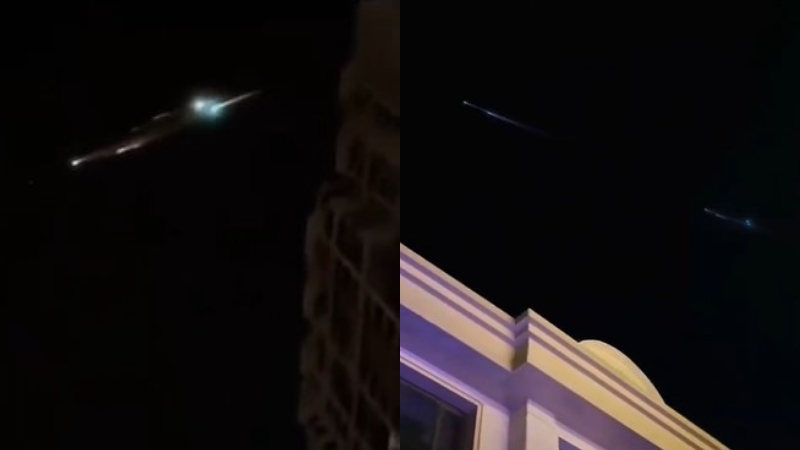
Late at night on 2 May 2023, a UFO appeared in the sky of Harbin, Heilongjiang, resembling an interstellar warship. Netizens hotly discussed: "Aliens are visiting Harbin." "The spaceship is coming!"
That night, many netizens in Harbin photographed UFOs. A video posted on the Internet showed a group of UFOs with flashing lights flying across the sky in a line. A man shouted in surprise in the video: "What the hell? See it for the first time."
Ms. Feng, who took the video, said that at around 11:00 p.m., the UFO was photographed and she thought it was an airplane at first, but later found that they were very close, and the overall ranking status did not look like an airplane.
"The second reaction is that they are meteors, but they are descending in the mode of landing. And the speed is quite fast, I really don't know what it is." Ms. Feng said that it is impossible for there to be so many meteors, and the batches are so dense. "I really wanted to explore it, so I took a picture of it."
Ms. Feng said that the UFO appeared and lasted about 10 seconds. The video she posted on social media showed a row of UFOs flying across the sky, with blue lights flashing and flames trailing behind them. There were a large number of them flying neatly forward. The picture is very similar to the scene where the star warship appeared in the science fiction movie.
The appearance of UFOs in Harbin sparked heated discussions among netizens: "Aliens are visiting Harbin?"
"It's the first time I saw such a clear UFO, like a luminous kite." "Like a flock of geese neat and smooth... This is the clearest UFO I have seen so far ······""The ass is still twinkling." "Take me away, I'm going to Mars."
Video (3)
UFO sighted in Qiqihar on 13 February 2023
On 13 February 2023, in Qiqihar, Heilongjiang, many citizens also photographed UFOs. The online video shows a string of light spots neatly arranged in the sky. A video shooter said: "I have never seen it before, and there is no sound. It is very high and bright."
Another video shooter said: "The front lights up one by one, and the back ones go out one by one, it doesn't look like artificial kites."
A netizen said, "It should be a UFO. Such a high speed, the known aircraft on the earth can't do it! The high speed of the space station, the ground can see it moving slowly, and the ground can see such a high speed, it may reach dozens of times the speed of sound."
Video (4)
[One knife is not cut] "Taiwan has no reason to unify with China"! Robert Tsao criticizes the Kuomintang and the Communist Party of China for stigmatizing Taiwan independence and even choking on the lies of the Kuomintang and the Communist Party of "rejuvenating the Chinese nation". Robert Tsao: Taiwan is only the last mile away from the normalization of the country |[Focus People Live] 20230501|Taiwan SETNEWS Live
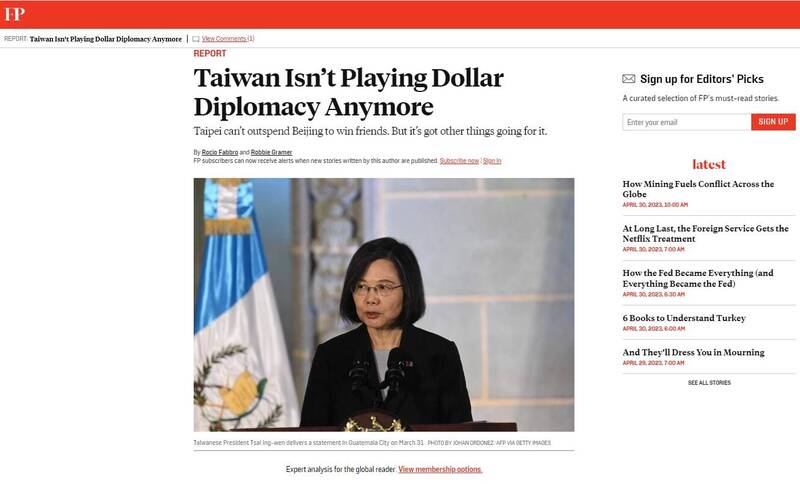
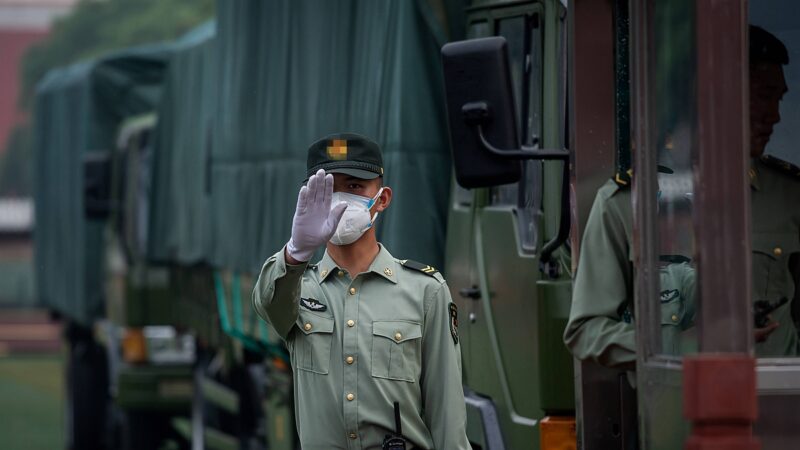
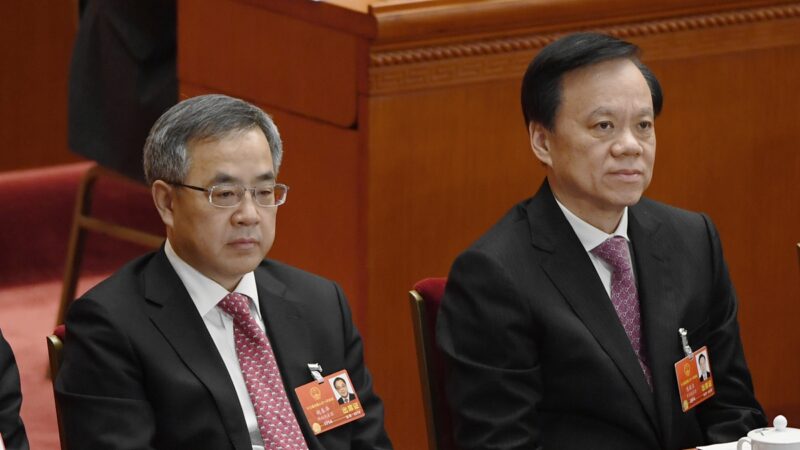
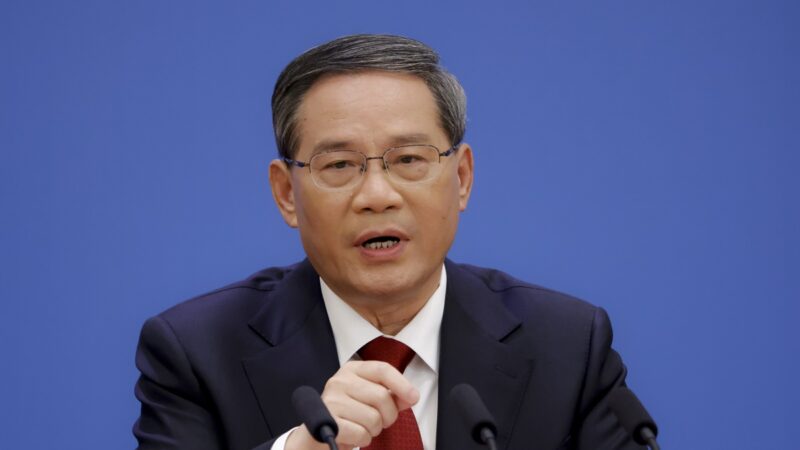


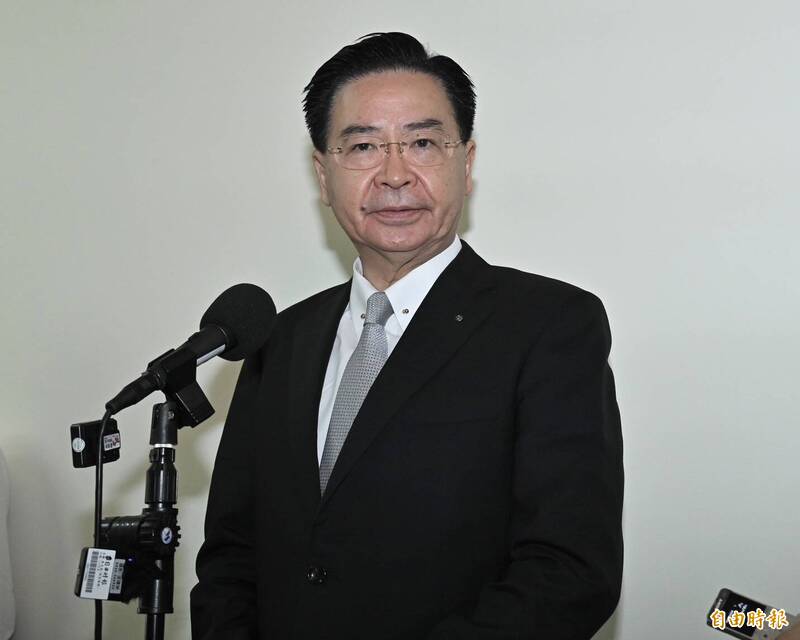

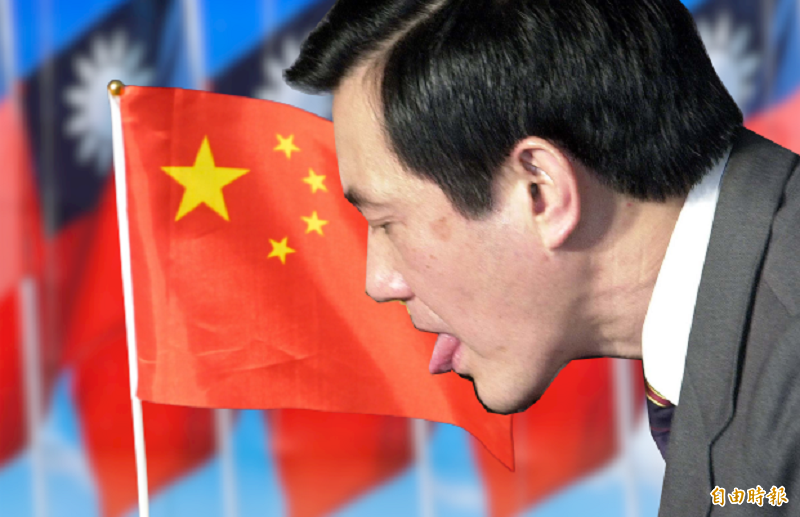
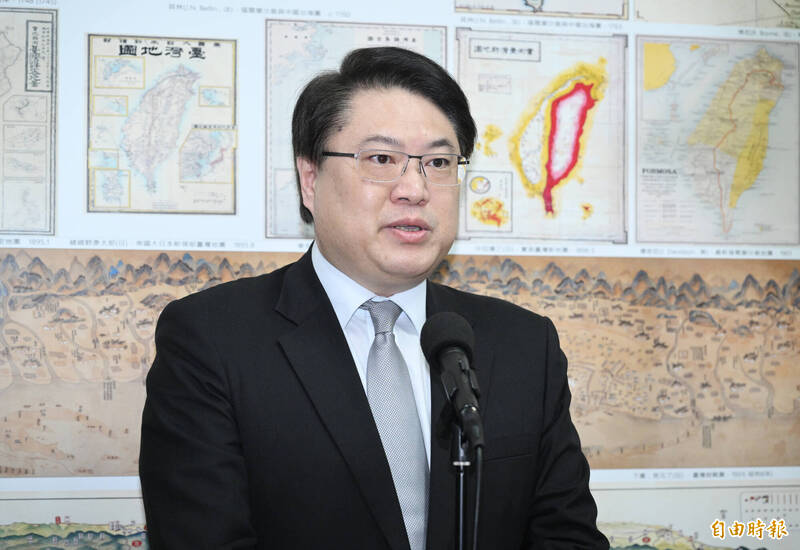


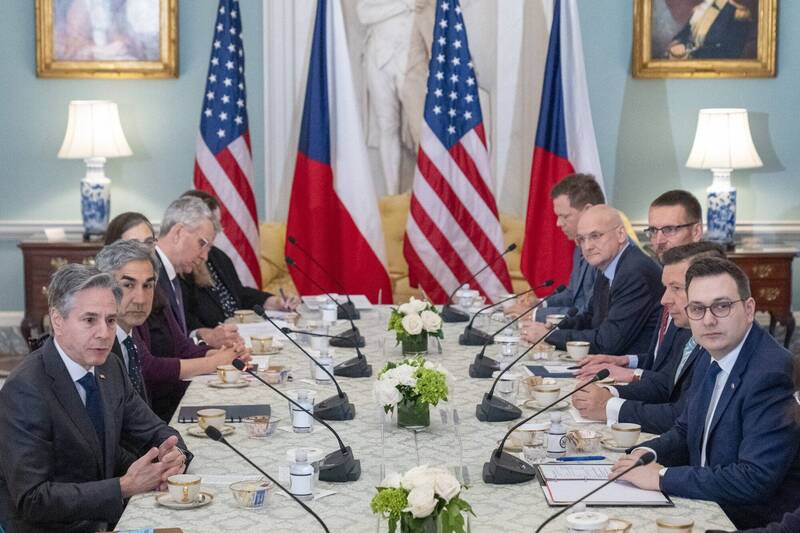




No comments:
Post a Comment